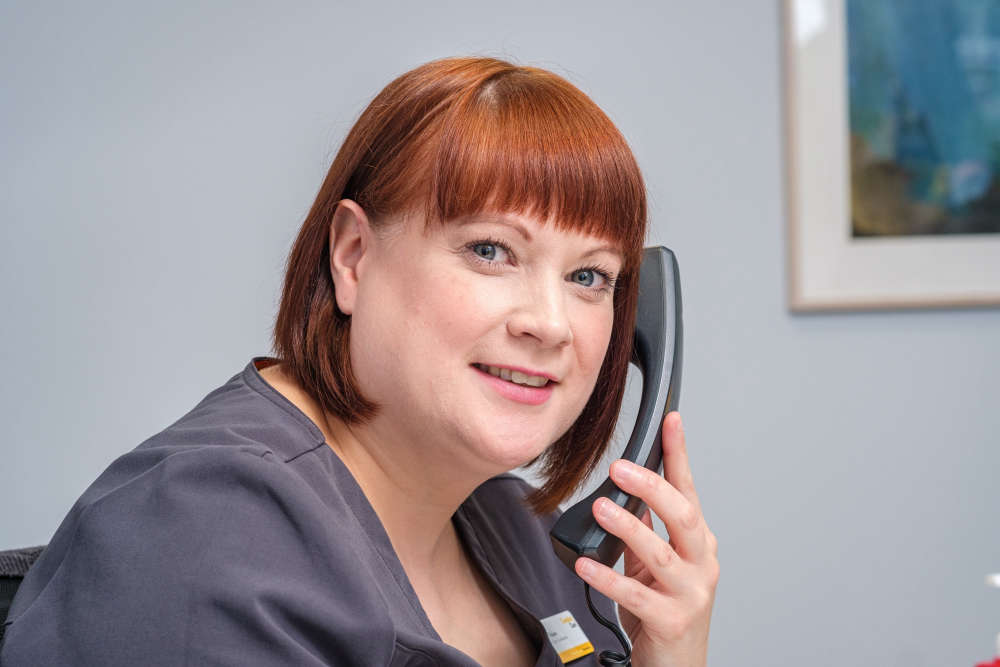
The Government has outlined further steps as part of their ‘Living with COVID-19’ strategy. From 1 April, there will be a removal of free universal symptomatic and asymptomatic testing programme in England, meaning most people will need to buy lateral flow or PCR tests commercially if they want to know their COVID-19 status.
From 1 April, people with symptoms of a respiratory infection, including COVID-19, and a high temperature or who feel unwell, should try to stay at home and avoid contact with other people until they feel well enough to resume normal activities and they no longer have a high temperature.
Testing will continue to be available for people with symptoms if they are:
- patients in hospital
- eligible for treatments because they are at higher risk of getting seriously ill
- living or working in high-risk settings such as care homes or the NHS
Anyone with a positive COVID-19 test result is advised to try to stay at home and avoid contact with other people for 5 days, which is when they are most infectious. Children with a positive COVID –19 test result should try to stay at home and avoid contact with other people for 3 days.
Symptom-free testing will continue to be available to protect people during periods of higher prevalence in some-high risk settings, where infection can spread quickly.
Stephen Gunther, Director of Public Health said, “Our COVID-19 rates in the borough are currently 616 per 100K of the population. They remain high and are continuing to rise. The changes by the Government to COVID-19 testing means that a substantial proportion of residents will no longer be testing for the virus routinely.
“Testing has been a valuable tool in our continued approach to containing the virus. Many residents used testing to know whether they had COVID-19 before mixing with vulnerable family members or going to work or school.
“Although we are no longer testing as frequently, it does not mean it has gone away but we are no longer able to easily track cases in Walsall. It also makes it more difficult for people to be confident that they are doing the right thing.”
“Now more than ever, we need to remain vigilant. From 1 April, it is even more important we focus on the other ways we can help keep each other safe. We all need to continue to make careful and considerate decisions to help limit the spread of infection amongst our communities.
“If anyone has COVID-19 symptoms (a high temperature, continuous cough, loss or change to taste or smell) or feels unwell, they should stay at home and avoid contact with other people, where they can.
“Choosing to wear a face covering and meeting people outdoors can help minimise your risk of passing the virus on or catching it. Continue to wash your hands regularly and follow good respiratory hygiene of catch it, bin it, and kill it. Always carry tissues and use them to catch your cough or sneeze, then throw it away in a bin and wash or sanitise your hands.
“By continuing to take precautions, you can reduce the risk of spreading the virus to others, especially those who are more vulnerable to serious illness.
“It is still vital that people get vaccinated if they are eligible. It is not too late to get a first, second or booster dose and it is easy to book an appointment or attend a local walk-in clinic. Even if you have had COVID-19, please complete your vaccination course as we are seeing residents get re-infected and the vaccination will help to reduce the risk of severe disease. People over the age of 75 and those with underlying health conditions can also get a ‘spring booster’ if they had their first booster around six months ago.
“I want to reassure residents that the public health team continues to monitor COVID-19 closely. Should there be a need for us to step up our efforts and support due to major outbreaks, steep increase in case numbers or hospitalisations, we have plans in place to ensure we are ready to do so.”
~ENDS~
Notes to editors
- It is expected that UK Health Security Agency will publish updated Stay at Home guidance for those who have COVID symptoms or feel unwell prior to the 1 April.
- The Council is encouraging residents to follow five simple steps to stay safe from Covid:
- stay home if you are feeling unwell, have symptoms or test positive
- get vaccinated – protect yourself and others
- ventilate your space – ventilate and let fresh air in during meetings
- wear a face covering – especially around those who are not part of your household
- wash your hands regularly – for at least 20 seconds
- Further information on Government sets out next steps for living with COVID - GOV.UK (www.gov.uk)
- Further information on those whose immune system means they are at a higher risk
- Further information on the Living with Covid strategy
- Under the plans set out by the Government free symptomatic testing will be provided for:
- Patients in hospital, where a PCR test is required for their care and to provide access to treatments and to support ongoing clinical surveillance for new variants;
- People who are eligible for community COVID-19 treatments because they are at higher risk of getting seriously ill from COVID-19. People in this group will be contacted directly and sent lateral flow tests to keep at home for use if they have symptoms as well as being told how to reorder tests; and
- People living or working in some high-risk settings. For example, staff in adult social care services such as homecare organisations and care homes, and residents in care homes and extra care and supported living services, NHS workers and those working and living in hospices, and prisons and places of detention (including immigration removal centres), where infection needs to be identified quickly to minimise outbreaks. People will also be tested before being discharged from hospital into care homes, hospices.
- Asymptomatic lateral flow testing will continue from April in some high-risk settings where infection can spread rapidly while prevalence is high.
- This includes patient-facing staff in the NHS and NHS-commissioned Independent Healthcare Providers, staff in hospices and adult social care services, such as homecare organisations and care homes, a small number of care home visitors who provide personal care, staff in some prisons and places of detention and in high-risk domestic abuse refuges and homelessness settings. In addition, testing will be provided for residential SEND, care home staff and residents during an outbreak and for care home residents upon admission. This also includes some staff in prisons and immigration removal centres.

 Charity Trade Event to Celebrate Brewers Decorator Centres Wolverhampton’s 2nd Birthday
Charity Trade Event to Celebrate Brewers Decorator Centres Wolverhampton’s 2nd Birthday
 Local charity invites you to ‘Walk for Compton’
Local charity invites you to ‘Walk for Compton’
 Win a signed Wolves shirt! And support local specialist palliative care charity, Compton Care
Win a signed Wolves shirt! And support local specialist palliative care charity, Compton Care
 TV Star and DJ, Jordan Davies to Appear at Wolverhampton's Gorgeous Nightclub
TV Star and DJ, Jordan Davies to Appear at Wolverhampton's Gorgeous Nightclub
 Kelly Walker-Reed Steps Down as CEO of Wolverhampton LGBT+
Kelly Walker-Reed Steps Down as CEO of Wolverhampton LGBT+
 Compton Care opens new community hub in Dudley *Exclusive offers and goody bags available!
Compton Care opens new community hub in Dudley *Exclusive offers and goody bags available!
 The way we talk about Dying Matters - Compton Care gives expert advice during national awareness week
The way we talk about Dying Matters - Compton Care gives expert advice during national awareness week
 Saddle up! Only a few weeks left to sign up for Compton Care’s Round the Wrekin cycling event!
Saddle up! Only a few weeks left to sign up for Compton Care’s Round the Wrekin cycling event!





Comments
Add a comment